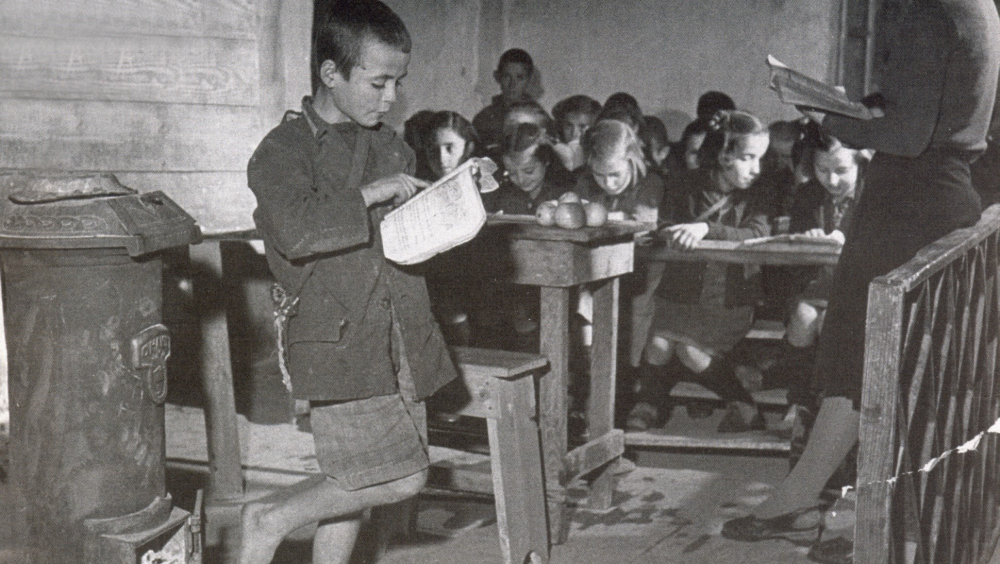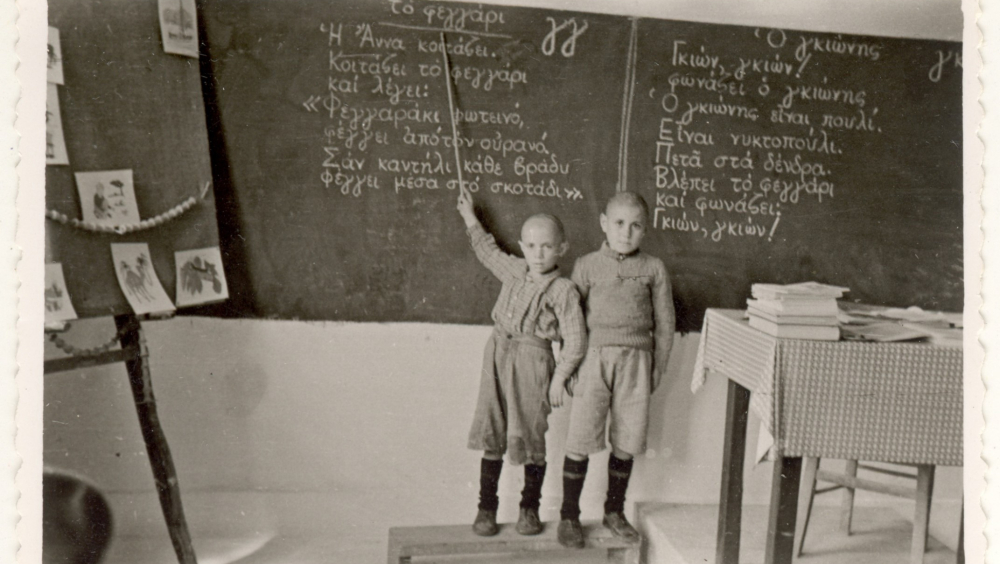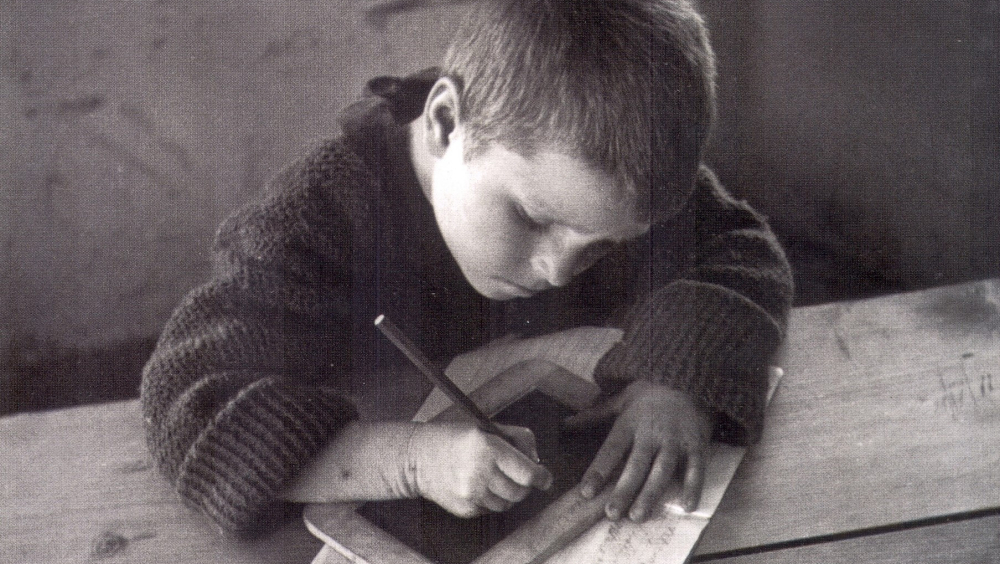VOICE: INTERCULTURAL SCHOOL LIFE STORIES
In the 21st century, history does not treat 'ordinary' people as objects but also as subjects, as agents of social action, present at all levels. History from below and especially Oral History raises the lens and illuminates new historical fields, broadens the reflections of historical interest, changes the social message of history and democratizes it.
The School Life and Education Museum collects not only exhibits on the history of schools, both tangible and intangible. In this effort, it has also created the Museum of Oral History of Education which collects testimonies from people about their school years and schools and the different roles associated with them (students, teachers).
The effort is supported by many actions and initiatives, workshops, trainings, seminars, conferences and a network of schools.
The goal is to incorporate stories and voices from other European countries and stories of immigrants and refugees who now live in Greece.
Nowadays the interest of the community, both Greek and the wider European community, in Oral History is particularly increased. The voice of the migrant, the refugee, the protester, the victim, the follower takes on a special significance in constantly evolving entities, such as that of the European Union, which must be welcomed, understood, accepted and supported.
School stories share and highlight common experiences in all European countries. After all, the history of schools and education is the history of Europe; it is the common past, the common collective memory and the foundations of the common present and future.
Oral history is “history from below”, giving voice to all individuals.
In education - formal and informal - oral history contributes to the renewal of history curricula, shapes the conditions for active inquiry-based learning, and integrates human experience into the learning and historical thinking of those involved. In this context, oral history has the advantage of updating and transforming the way in which the community learns or relearns history, its own history and the history of others.
Contemporary approaches to oral history highlight the need for the stories of different people to interact in the context of new collectivities that are formed in constantly evolving entities, such as the European multicultural family.
Oral testimonies, as a product of this process, bear witness to both the 'important' and the 'insignificant' of people's lives, reveal everyday life, fill in the gaps of official sources, mediate the collective, the memory and oblivion of local, national, European and global society, its beliefs and myths.
Oral testimonies indicate a specific preference for visiting the past through the experience of the historical subjects, a specific desire to study the way in which the subjects themselves understand their own existence and action. This choice is pedagogically revolutionary as it shifts the focus from the heroes and personalities of school history to everyday people, to whom it recognises the right to history.
The School Life and Education Museum is a museum that aims to highlight the history of education. In its archives (over 20000 records, there are documents of the tangible school heritage) and among them a collection of school textbooks from all over the world.
Through the action “VOICE: School Life Intercultural Stories”, the School Life and Education Museum attempts to use Oral History as an environment to record and highlight the stories that the community carries, in formal (schools), non-formal (museums, cultural organizations) and informal (voluntary groups, collectives) education.
However, it also aims to highlight intangible forms of this heritage through the collection of oral testimonies about education in the past. In this effort it has created the Museum of Oral History of Education which collects testimonies from people about their school years.
The aim of the project is to use oral history in formal and non-formal educational environments to raise community awareness and participation in the recording of school histories of intercultural identity, in order to highlight the possibilities that oral history offers to communities of active European citizens to explore elements of their collectivities, their multiple identities, their past and present that unite them.
Stories of children who had to leave their schools due to economic problems, and wars, stories of children who had to walk 2-3 hours away to go to school, but also stories of teachers and how they experienced teaching with 100 students in a classroom. At the same time, stories about people in the past unfold, how people lived, what their habits were like, what their schools were like, what games they played during breaks, what they had for snacks, how they were saved from starvation by the student rations during the war years and after the war, stories of persecution, the stories of Jewish students who never returned to their schools after the war, but also stories about the objects of school life, the school bell, a notebook, a book, what stories it carries and narrates to us. Stories of children who had to leave their schools due to economic problems, and wars, stories of children who had to walk 2-3 hours away to go to school, but also stories of teachers and how they experienced teaching with 100 students in a classroom. At the same time, stories about people in the past unfold, how people lived, what their habits were like, what their schools were like, what games they played during breaks, what they had for snacks, how they were saved from starvation by the student rations during the war years and after the war, stories of persecution, the stories of Jewish students who never returned to their schools after the war, but also stories about the objects of school life, the school bell, a notebook, a book, what stories it carries and narrates to us.
Every year it organizes student competitions on the subject of school history by supporting and training teachers in the process of collecting interviews on this subject. These creations are uploaded to the Museum of School Life and Education's channel and enrich the digital repository. https://bit.ly/2TJ2NAm (http://ekedisy.gr/mousio-proforikis-istorias/) https://ekedisy.gr/category/museum/sinentefxis-ekpedeftikon/ (teacher interviews), https://ekedisy.gr/category/museum/1os-mathitikos-diagonismos/
Organizes a Network of Schools on the subject "Schools in search of their history" in which about 1000 schools from all over Greece, Cyprus and the Greek Diaspora are participating https://schoolsnetwork.weebly.com/
It creates educational programmes and provides training materials for schools and adults.
It organises conferences, workshops and seminars on this subject.
It has edited a documentary on the history of schools called "Learning to write" https://youtu.be/ku8HcorP8Yg
It has created an educational walking tour called The Stories of the Schools of Athens. This walk is conducted for both adults and children and is enriched by the testimonies collected and often conducted by the "witnesses" of the oral histories themselves.
The walking tour is also conducted in English as many schools and universities visit Athens and the School Life and Education Museum.
An educational walking tour on the history of education in Athens will be held during Heritage Days.
The history of schools and education is the history of Europe; it is the common past, the collective memory and the foundations of the common present and future.
School histories share common experiences in all European countries. The difficulties of the old pupils in accessing education, the teaching style and approaches of educators such as Rousseau, Pestalozzi, Montessori on whose principles educational systems, including those of Greece, were based, highlight and declare the common past and common roots in education.
The aim is to add stories and voices from other European countries as well as stories of immigrants and refugees now living in Greece.
Nowadays the interest of the community, both Greek and the wider European community, in Oral History is particularly increased. The voice of the migrant, the refugee, the protester, the victim, the follower takes on a special significance in constantly evolving entities, such as that of the European Union, which must be welcomed, understood, accepted and supported. Political changes, the constant voluntary or involuntary mobility of populations, the historical claims of social groups, the need to undertake actions of solidarity with individuals and groups in need, and the questioning of cultural and religious identities form a dynamic field for dealing with public history and in particular with oral history, the recording of the reason associated with these phenomena.


